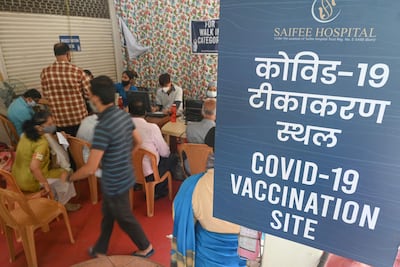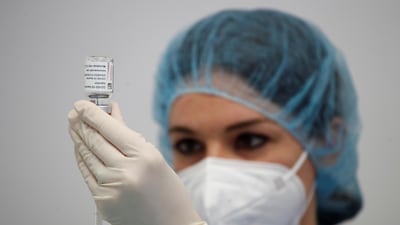The breakthroughs achieved by science in developing highly effective vaccines against Covid-19 are nothing short of extraordinary. What once took up to a decade has been done in less than a year. This is primarily a result of remarkable international co-operation.
Yet the impact of those achievements will be dangerously undermined unless the whole world has access to Covid-19 vaccines. Together, we must absolutely ensure that a two-tier system does not develop between those who have access to vaccines, and those who do not.
That is why Covax, the first-of-its-kind multilateral initiative to distribute vaccines around the world, including for those most in need and least able to pay, is so critical. Set up by some of the world’s leading health bodies – including Gavi, the Vaccine Alliance, the World Health Organisation and the Coalition for Epidemic Preparedness Innovations – Covax is the largest vaccination programme in history and is on track to ensure that all people, regardless of income or where they live, have access to safe, effective Covid-19 vaccines.
Ultimately, global protection against the disease will depend on its success.
Last week, Covax reached a major milestone – with more than 38 million doses distributed to over 100 countries and counting. The fact this has been achieved in just over a month is testament to the vital approach of international partnership and unity behind this mission.
But there is no intention of stopping at 100 countries. The WHO and global leaders have stressed the stark lesson from the Covid-19 pandemic: that ‘nobody is safe until everyone is safe’. And they are absolutely right. AstraZeneca and its partners within Covax will not rest until all communities and economies are protected from the disease and able to stand up strong again.
In striving to ensure that deliveries are equitable, Covax is supplying six continents globally – Africa, Asia, Australia/Oceania, Europe, North America and South America. For many, especially in the developing world, these deliveries are the first shipments of vaccine since the pandemic response began, making Covax a critical lifeline in combating a disease that has inflicted untold human suffering and decimated economies. In the coming weeks and months, vaccine deliveries will continue to take place.
The rollout is moving at unprecedented pace, with the goal of distributing two billion Covax doses by the end of the year. This will be enough to protect the most vulnerable populations and high-risk groups, including front line health workers. The AstraZeneca vaccine, which represents the vast majority of the supply of Covax doses in the first half of this year, is being supplied at no profit during the pandemic, irrespective of a nation’s income level: a move hopefully other manufacturers will follow. With a programme of this scale and ambition, it will not always be smooth – developing and manufacturing vaccines is a complex, biological operation and the logistics involved in supplying dozens of countries around the same time are extensive. But all Covax partners are committed to working together to deliver on its shared objective.

Just weeks after the first vaccine doses started to arrive across the world through Covax, the Covid-19 vaccine supplied by AstraZeneca has been received by all participating countries across the Middle East.
Fifteen months since it began, the pandemic has taught us many things, including that Covid-19 is indiscriminate of age, sex or geography. Whether you are rich or poor, it can strike. We must not forget that over 2.9 million people worldwide have died from Covid-19. But the pandemic has also taught us that when the world works together it can achieve remarkable things in record-breaking time.
There is no doubt that vaccinating populations across the planet represents the biggest public health programme in history. Nothing on this scale has ever been attempted before. But it will only achieve its goal – one world protected – if doses are delivered promptly and vaccination campaigns are efficiently carried out on the ground.
That is why intense collaboration is required every step of the way: from developers and manufacturers, to co-ordinating authorities, governments and donors, to logistics providers shipping supply across borders in record time, and dedicated healthcare workers who are tirelessly administering vaccines.
It is collaboration that has got us this far and it is collaboration that will ensure all of humanity – not just those that can afford it – is ultimately protected. If Covid-19 has reminded us of our collective vulnerability, it has also shown that when we unite, we are so much stronger.
With a virus that knows no boundaries, Covax is an opportunity for the world to show that it can look and act beyond boundaries too, and throw a protective blanket over as many people as possible. A virus-free future depends on us all working together.
Leon Wang is executive vice president, International, AstraZeneca, andAurelia Nguyen is managing director, Covax Facility, hosted by Gavi, the Vaccine Alliance

